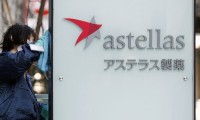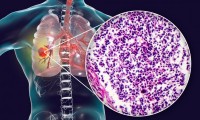-
GSK beats Merck to first PD-1 approval in newly diagnosed endometrial cancer
- Source: drugdu
- 105
- August 2, 2023
-
Merck, Moderna Launch Pivotal Cancer Vaccine Trial for High-Risk Melanoma
- Source: drugdu
- 138
- July 28, 2023
-
Elevar Touts First-line Potential of Rivoceranib in Phase III Liver Cancer Trial
- Source: drugdu
- 127
- July 27, 2023
-
Astellas Strikes Another Deal to Expand in Cancer, Partnering With PeptiDream
- Source: drugdu
- 110
- July 27, 2023
-
SN Bioscience’s Nano-Cancer Therapy Wins Orphan Drug Designation
- Source: drugdu
- 100
- July 25, 2023
-
Phase III Data Show Keytruda’s Promise in Earlier-Stage Cervical Cancer
- Source: drugdu
- 105
- July 21, 2023
-
Healthy Breast Fat may Protect Against Invasive Breast Cancer
- Source: drugdu
- 101
- July 18, 2023
-
FDA Clears More Chemotherapy Imports from China’s Qilu Amid Shortage of Key Cancer Meds
- Source: drugdu
- 101
- July 14, 2023
-
GSK’s Jemperli Made Available to Endometrial Cancer Patients via UK’s Early Access Scheme
- Source: drugdu
- 114
- July 13, 2023
-
Astellas Gains FDA Priority Review for Gastric Cancer Therapy BLA
- Source: drugdu
- 118
- July 11, 2023
your submission has already been received.
OK
Subscribe
Please enter a valid Email address!
Submit
The most relevant industry news & insight will be sent to you every two weeks.













